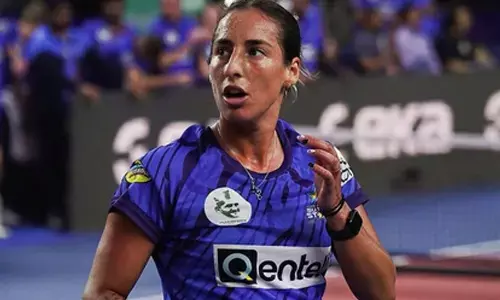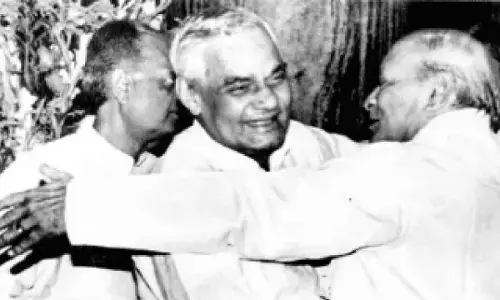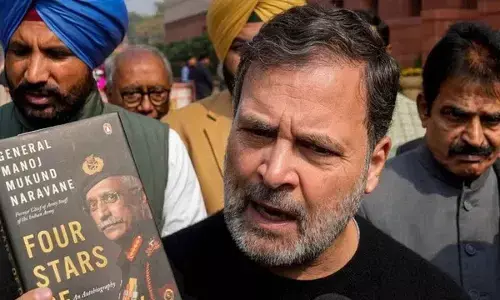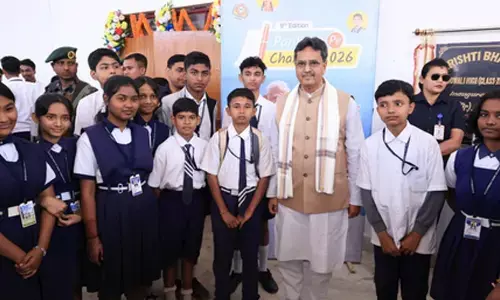India home to 21 unicorns valued at USD 73.2 billion
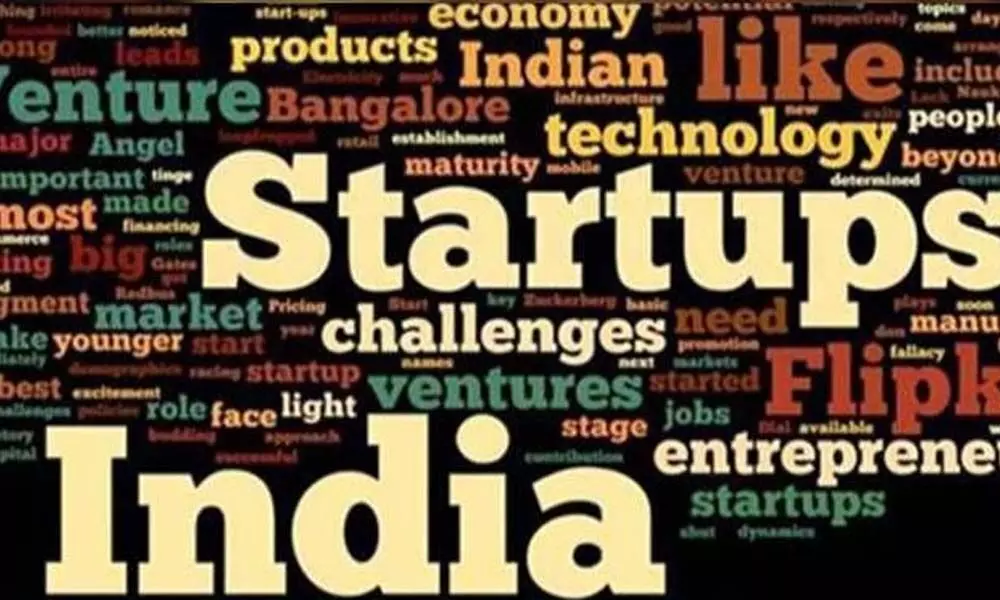
India home to 21 unicorns valued at USD 73.2 billion
India is currently the third-largest startup ecosystem in the world and is home to 21 unicorns valued at USD 73.2 billion, India's top envoy in the US has said, as he expressed hope that more than 50 startups might join the unicorn club as early as 2022
India is currently the third-largest startup ecosystem in the world and is home to 21 unicorns valued at USD 73.2 billion, India's top envoy in the US has said, as he expressed hope that more than 50 startups might join the unicorn club as early as 2022. "Entrepreneurial activity has picked up in India. In 2020 India was among the top 50 innovative economies," India's Ambassador to the US Taranjit Singh Sandhu said.
"Today India is the third-largest, startup ecosystem in the world and is home to 21 unicorns valued at USD 73.2 billion. By some estimates, more than 50 'soonicorn' startups might join the unicorn club as early as 2022," he said. A unicorn is a term to indicate a privately held startup company valued at over USD 1 billion. Soonicorns are startup companies that are good candidates for late-stage investment and have a good possibility of becoming 'unicorns'.
"A little below 2019 but definitely encouraging, considering the current pandemic. It is because people like you were not averse to taking risks and were not deterred by challenges. People like you continued to think out of the box. People like you put all your efforts in creating a better life around you," he said. Rise of Indian IT companies, large talent pool, increased expendable income of Indian middle class and availability of capital have contributed to the growth of India's startup ecosystem.
More recently increased usage of smartphones, access to the internet, and recent reforms to push digital finance have given further impetus. There has also been a significant push from the Government through initiatives like Startup India and Digital India, he said. "Indian startups are steadily evolving into global entities creating business products, and solutions for the global market," he added.
"The Bay Area- Silicon Valley is the world's topmost innovation hub accounting for, I am told, more than a fifth of global venture capital investment. Its success has been hard to replicate elsewhere even with sizeable investments," he said, adding that the important ingredient that is often found missing elsewhere is the culture of Silicon Valley. Three cities- Bengaluru, Mumbai and NCR Delhi- have changed the face of modern India and find a place among the famous Global Startup hubs. Cities like Pune, Hyderabad, Ahmedabad and Kolkata are counted amongst the emerging startup hubs. "We need to do more to be counted amongst the 'superstar hubs'," he said.
Noting that India and Silicon Valley have a close relationship spanning over many decades, Sandhu said Prime Minister Narendra Modi's visit to Silicon Valley in 2016 signified the importance of this entrepreneurial bridge and partnership. Sandhu said that Indian programmers, engineers and entrepreneurs are providing their skills and that too in sizeable numbers to US companies.
India is also a leading R&D hub for many of these companies. Many US-based venture firms have been investing in Indian talent and are amongst the largest players in the field. Bay Area- Silicon Valley is also central to growth strategies of many Indian companies bringing innovation to the doorstep of customers with the help of startups, he said.
"In the US, startup ecosystem is developing beyond Silicon Valley and big economic centres like New York, Boston, LA, Chicago. Philadelphia in Pennsylvania, Research Triangle in North Carolina, Portland, Minneapolis, are gaining prominence, as emerging start-up hubs. This has opened up new opportunities for collaboration for Indian entrepreneurs," Sandhu said. Around 150 Indian startups attended the event, said the Indian Embassy in a statement.
4 successful startups by Wharton Alumni
AlphaVector (Sachin & Vishal Chopra) - Founded by brothers, Sachin and Vishal Chopra, AlphaVector is a homegrown startup championing the cause of Cycling and Active Lifestyle in India. Through a range of innovative, engineered for endurance and safety and performance-driven bicycles from brand Ninety One, the brothers aim to encourage millennials and Gen-Z to reclaim the outdoors. Ninety One is inspired by India's rich history and embodies its action-oriented and constantly evolving spirit. Backed by Fireside Ventures, Avaana Capital and Titan Capital, AlphaVector has raised Pre-Series A funding and is innovating the D2C (direct-to-consumer) space with a unique omnichannel business model.
Every online purchase is mapped to a dealer offline through AlphaVector's 91CARES program ensuring the customer has the satisfaction of guaranteed assembly/service and a delightful riding experience during the lifetime of owning the bike. It also offers hassle-free support across the country ensuring customer delight all through the journey of purchasing an AlphaVector bike to riding it for many years.
PhonePe (Sameer Nigam, Rahul Chari, Burzin Engineer): PhonePe is a wallet-based payment solution for consumers. It is making lives easier with UPI-based solutions for money transfer, online payment at retail merchants, mobile & DTH recharging, paying postpaid & utility bills, checking account balance, online shopping, splitting bills, online travel ticket booking, and more. Founded in 2015, PhonePe has been acquired by e-commerce major, Flipkart. PhonePe has recently USD 700 million (about Rs 5,172 crore) in primary capital at a post-money valuation of USD 5.5 billion.
Simple, fast, and secure, PhonePe is one app for all things money which you can use to pay whenever you like, wherever you like. The founder & CEO, Sameer Nigam, founded PhonePe in 2015 and has won the coveted Wharton Venture Award by his alma mater. Before PhonePe, he served as the SVP Engineering and VP Marketing at Flipkart. His Flipkart journey started in 2011 when the company acquired his earlier startup - Mime360. Sameer has also served as the Director of Product Management at Shopzilla Inc, where he built the company's proprietary shopping search engine. Milk Basket (Anurag Jain, Yatish Talvadia, Ashish Goel & Anant Goel): Milk Basket is a hyperlocal delivery startup that is a subscription-based service fulfilling daily dairy essentials and household needs of users. Milkbasket has recently raised $5.5 million funding led by Inflection Point Ventures in the Series B round. Existing investors Blume Ventures, Kalaari Capital, Mayfield India, Unilever Ventures, and BeeNext also participated.Milkbasket has raised over $33 million in funding so far. Before founding Milkbasket in early 2015 with his friends, Anant had the experience of running three ventures. Anant has the vision to touch the lives of over a million households with Milkbasket's micro-delivery model, which he believes, will redefine the online grocery delivery industry in India.
FabHotels (Adarsh Manpuria & Vaibhav Aggarwal): Founded in 2014, Fabhotels is a new age budget hotels brand, now with 600+ hotels in 50+ Indian cities. The founders founded it based on a real-life problem where they faced a huge problem finding reliable, trustworthy, and value for money accommodation wherever they travelled, and unwillingly, ended up spending on top-end hotels instead. This was a problem that a lot of their friends faced as well. Hence, they decided to launch their own brand of budget hotels. Till date, FabHotels has raised $48.6 Mn in seven funding rounds. In June 2019, the company raised Rs 54 Cr from Goldman Sachs, Qualcomm Ventures, and Accel Partners India.
All hotels follow rigorous housekeeping procedures, undergo strict auditing processes, and have courteous trained staff to ensure a hassle-free experience every time a consumer checks in.









